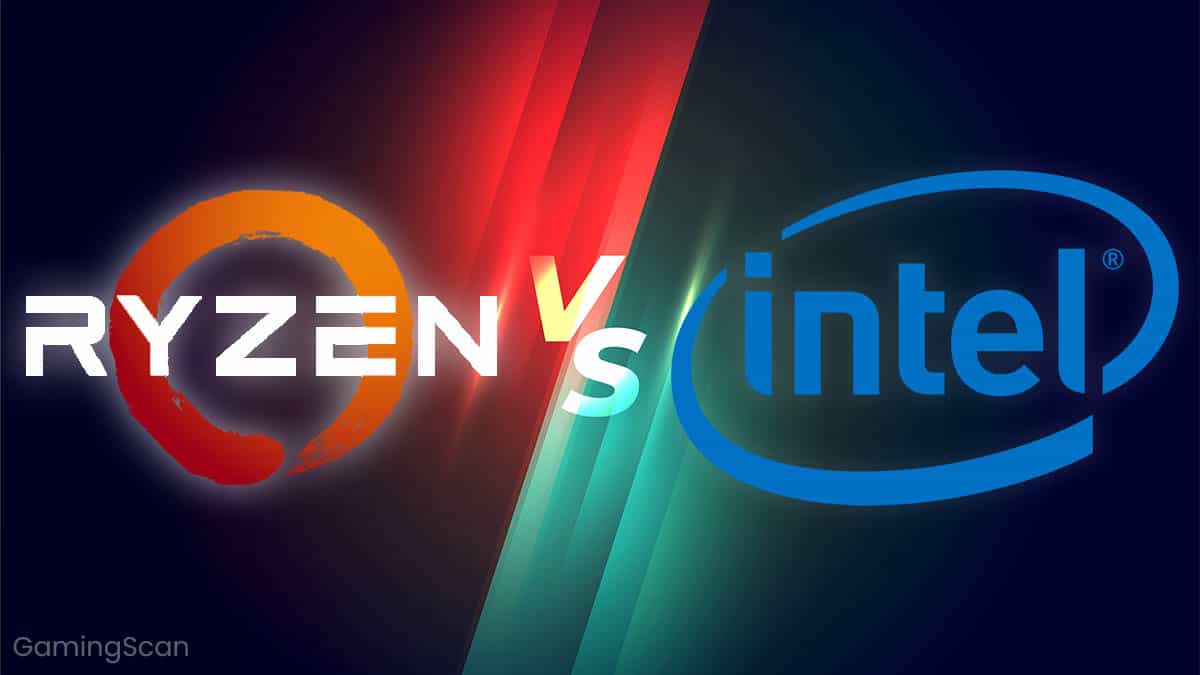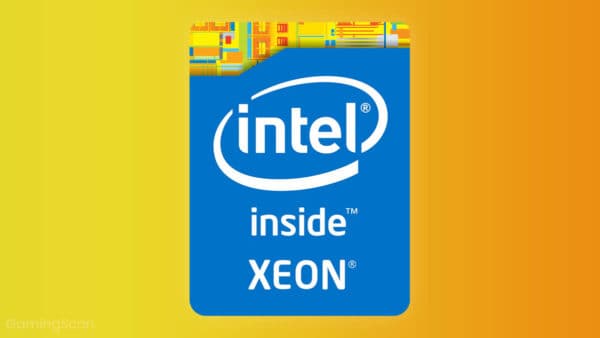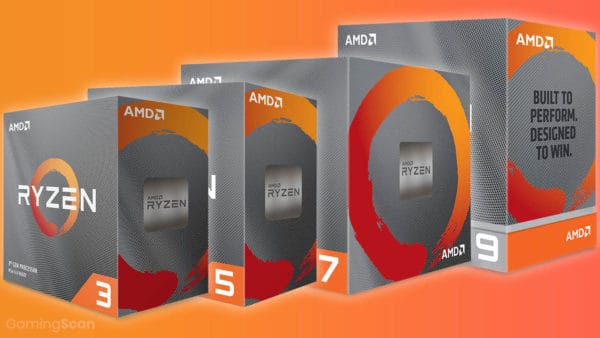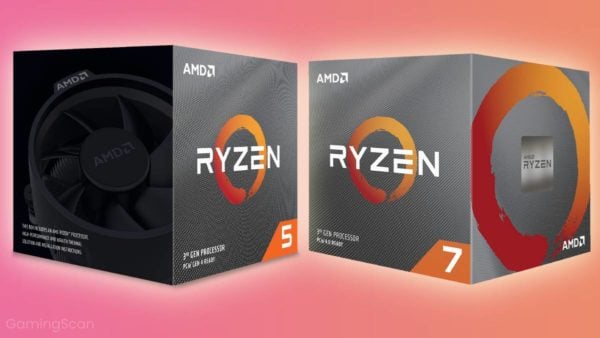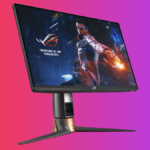Answer:
AMD Ryzen and the Intel Core CPUs offer similar performance. As a general rule of thumb, AMD Ryzen processors are better at multi-tasking, while Intel Core CPUs are faster when it comes to single-core tasks.
However, Ryzen CPUs tend to offer better value for money.
Choosing the best hardware for your new gaming PC is never easy. Before you settle on a particular model of any piece of hardware, you first need to choose a brand.
In the desktop CPU world, the two main players on the market are AMD and Intel. While Intel definitely had the undisputed lead throughout the 2010s, the situation changed drastically in the past few years.
In 2017, AMD released its first Ryzen CPUs, which were a long-overdue return to form for “Team Red.” It’s 2024 now and the third generation of Ryzen has proven to be more than good competition for Intel’s 9th generation Core CPUs.
So, which CPU brand is better for gaming in 2024? That’s precisely what we’ll answer in this guide.
Table of ContentsShow
The Recent Years
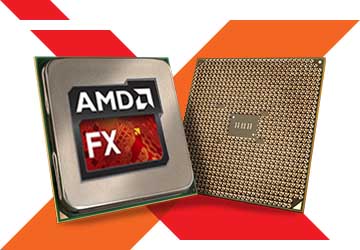
Before addressing the main question, let’s look at what the playing field was like recently.
For the most part, Intel was the premium choice, boasting more advanced technology and better overall performance, especially in the high-end spectrum. AMD, on the other hand, provided more affordable solutions that relied on raw power to be able to compete with what Intel had to offer.
Even though AMD had overall managed to keep up, things took a turn for the worse after 2013. Namely, AMD had released their FX series of CPUs, which not only came with high core counts (for the time) but also had great overclocking potential and high base clock speeds.
Needless to say, they were very viable options when they first came out. However, years went by, and AMD had nothing fresh to offer. The technology stagnated and was quickly leagues behind that of Intel, whose CPUs kept improving year after year.
Sure enough, the FX series was soon left powering entry-level and, occasionally, some mid-range gaming rigs. In contrast, the AMD A-Series APUs were only found in basic computers not intended for gaming. The only flicker of hope for AMD was the upcoming “Zen” architecture that had been in the making for years during AMD’s downward spiral.
And then it finally happened in 2017. Flashforward to current times and here we are.
Enter AMD Ryzen
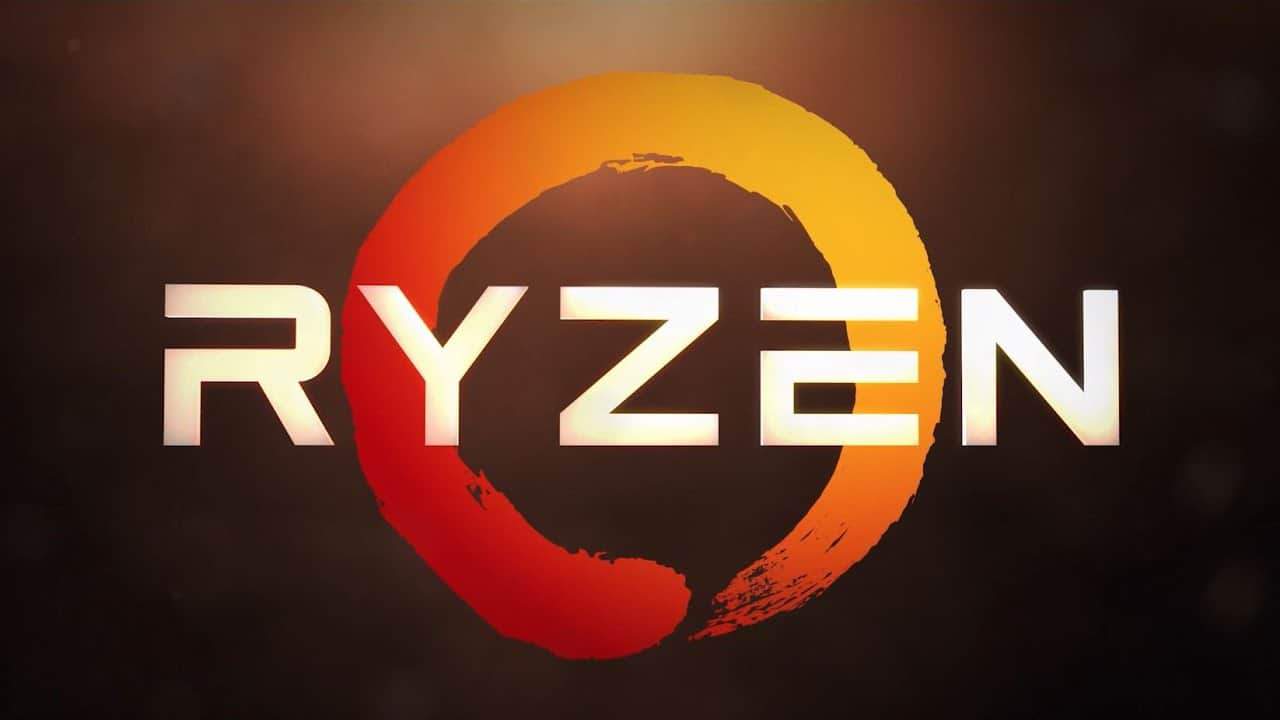
The third generation of Ryzen CPUs is based on the Zen 2 architecture. It’s fabricated using a 7nm process and comprised of a number of versatile solutions at all price points.
Overall, Ryzen CPUs can be divided into five groups:
- Ryzen 3 – Intended for entry-level PCs, offering good processing power at remarkably low prices.
- Ryzen 5 – Mid-range CPUs that offer great value for money and are great picks for many gaming builds.
- Ryzen 7 – Performance-oriented solutions that will be right at home in the majority of high-end gaming PCs.
- Ryzen 9 – Enthusiast-level performance at premium prices, but usually overkill for gaming.
- Threadripper – Top-of-the-line CPUs with a monstrous number of cores that offer unmatched performance, intended mostly for high-end workstations.
Since 2017, AMD has succeeded in giving Intel a run for its money, offering more powerful solutions year after year at very good prices. As a result, many gamers left the Intel camp and moved to AMD.
More specifically, however, you’re probably asking yourself how do the latest 3rd generation Ryzen CPUs compare to Intel’s 9th generation Core CPUs?
AMD Ryzen vs Intel Core
Clock speeds
In the days of their FX CPUs, AMD’s more robust architecture had allowed their processors to achieve higher base clock speeds. The situation is a little different today, as the two are more or less evenly matched in this regard.
However, clock speeds displayed on paper are a very poor way to estimate any processor’s performance. As a matter of fact, they can actually be misleading, especially in this day and age, where you won’t find a gaming CPU with a base clock speed lower than 3 GHz.
The real question is – how do they fare when it comes to overclocking?
Overclocking

As we have already mentioned, AMD processors used to be known for their overclocking capabilities. Sure enough, all Ryzen CPUs are unlocked and can be overclocked, provided that the motherboard chipset actually supports overclocking.
In contrast, not all Intel CPUs are unlocked. Only the models marked with a “K” at the end of the model number can be overclocked safely. We emphasize the word ‘safely’ because, while there are ways to overclock Intel CPUs which aren’t unlocked, doing so is generally not advisable due to risks of hardware damage.
Needless to say, overclocking performance will inevitably vary from model to model, though Intel CPUs actually have the upper hand in this department at the moment.
Namely, high-end Intel CPUs can be pushed further than their Ryzen counterparts, leading to better single-core performance. While it’s not a big issue for most builds, enthusiasts who want to squeeze as much performance as they possibly can out of their CPU will want to keep this in mind.
Core Count
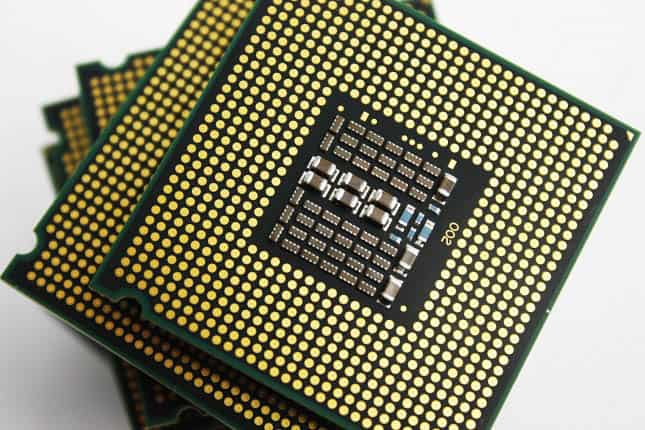
As mentioned before, the high core counts found in AMD’s FX CPUs is what helped them remain relevant even after the Piledriver architecture became severely outdated. At launch, the high core and thread counts of Ryzen CPUs were also one of their main selling points, especially since they outdid nearly every model that Intel was offering at the time.
So, how do the core and thread counts compare in 2024?
Well, first, we should quickly touch upon the subject of multithreading and hyperthreading.
In essence, these two technologies belong to AMD and Intel, respectively, but are fundamentally the same thing – a CPU with multithreading/hyperthreading features cores that can handle two tasks simultaneously, thus greatly enhancing their multitasking capabilities.
So, for example, if a CPU has four physical cores with multithreading, that means it has a total of eight logical cores i.e., threads.
Now, if we compare the 3rd generation Ryzen and the 9th generation Core CPUs, the one thing that immediately becomes apparent is that all the mainstream desktop Ryzen CPUs feature multithreading, while only the Intel Core i9 models come with hyperthreading.
Here you have a brief overview:
- The Ryzen 3 CPUs come with 4 cores and 8 threads, while i3 CPUs come with 4 cores and 4 threads.
- The Ryzen 5 CPUs come with 6 cores and 12 threads, while i5 CPUs come with 6 cores and 6 threads.
- The Ryzen 7 CPUs come with 8 cores and 16 threads, while i7 CPUs come with 8 cores and 8 threads.
- Finally, the Ryzen 9 CPUs come with 12 cores and 24 threads, while the i9 CPUs come with 8 cores and 16 threads.
So, needless to say, AMD definitely has the upper hand when it comes to thread counts and multitasking, although Intel aims to close this gap with the upcoming 10th generation Core CPUs, all of which will feature hyperthreading.
Performance
As we’ve just mentioned, Ryzen is the leader in terms of multitasking, while Intel Core CPUs can still offer slightly better single-core performance.
So, which one is more important for gaming?
Well, there’s not really a straightforward answer to that. In the past, games didn’t usually make much use of multiple cores since multi-core CPUs weren’t all that common. But things have changed. We’re in 2024 now, and there’s mainstream CPUs with very high core and thread counts – it’s a different story.
For instance, many developers now optimize their games to take full advantage of these high thread counts, which often results in noticeably better performance in some games.
However, the exact performance benefits will inevitably vary from model to model and from game to game, so it’s impossible to make generalizations in this respect.
Compatibility
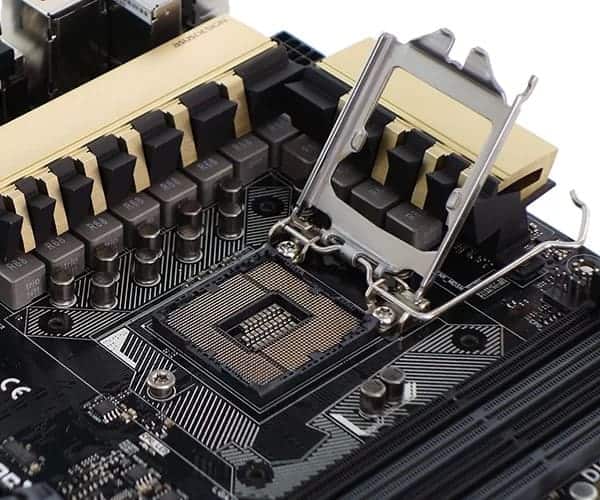
When it comes to the question of compatibility, there are two key factors to consider, and they’re both related to the motherboard: the socket and the chipset.
The socket is just what the name implies: the slot where the CPU itself is placed and through which it interfaces with the motherboard. And if the CPU can fit in the socket, then it will be compatible with the chipset, though cheaper chipsets will lack some features that the more expensive ones have.
As mentioned previously, not all chipsets support overclocking. In addition to that, they differ in a few other respects, such as multi-GPU support, the number of ports and connectors, and additional technologies such as Intel Optane or AMD StoreMI.
Now, all Ryzen CPUs (barring the Threadripper models) currently use the AM4 socket, which was designed with compatibility in mind. As for chipset features, you can see a list of all AM4 chipsets here.
Meanwhile, the latest Intel CPUs use the LGA 1151 socket, which was introduced in 2015, although it had since received several revisions that made backward/forward compatibility problematic. You can see a list of all LGA 1151 chipsets here.
That said, it’s obvious that AMD has the upper hand in this regard as well, since you can easily swap out CPUs without having to worry about compatibility.
Intel’s upcoming 10th generation Comet Lake CPUs will use a new LGA 1200 socket. Once again, this means that those who want to upgrade will have to get a brand new motherboard, though it remains to be seen how Intel will handle this matter moving forward.
Meanwhile, the AM4 socket is due to be succeeded by the AM5 socket in 2021 with the launch of the 5th generation of Ryzen CPUs, so it’s still relevant in 2024.
Conclusion
And now, the answer you’ve all been waiting for.
As far as we’re concerned, AMD Ryzen is the better option for gaming at the moment, but it remains to be seen whether the situation will change anytime soon.
So, why Ryzen?
Sure, they aren’t better at everything; but, while high-end Intel CPUs are mostly a better choice for enthusiasts and some professionals due to their overclocking abilities and superb single-core performance, Ryzen offers so much more for less money when it comes to gaming.
They not only offer more threads and comparable gaming performance, but are slightly cheaper as well. On top of that, upgrading to a newer CPU is much easier since you don’t have to worry about compatibility issues (although, as mentioned above, AMD will be replacing the AM4 socket with the AM5 in 2021).
The cherry on top of the cake is that AMD’s stock coolers are also a fair bit better than what Intel has to offer. All of this adds up to make Ryzen a better and more cost-effective solution, something that many gamers are bound to appreciate.
Now, this isn’t to say that Intel isn’t a viable choice – as mentioned before, Intel’s CPUs still have better single-core performance and they overclock better as well, which still keeps them relevant for high-end builds.
However, they don’t exactly offer good value for the average gamer right now, as they can easily come across as overpriced and the compatibility issues are a big turnoff for many of us.
In conclusion, Intel CPUs are worth the money if you’re building a high-end gaming or workstation PC and plan on overclocking your CPU to get as much performance out of it as you can. Other than that, as far as mainstream gaming is concerned, AMD is the definite way to go.
If you’re currently shopping for a new CPU, we suggest that you also check out our selection of the best gaming CPUs currently available, as you’re bound to find a good fit for your needs.
